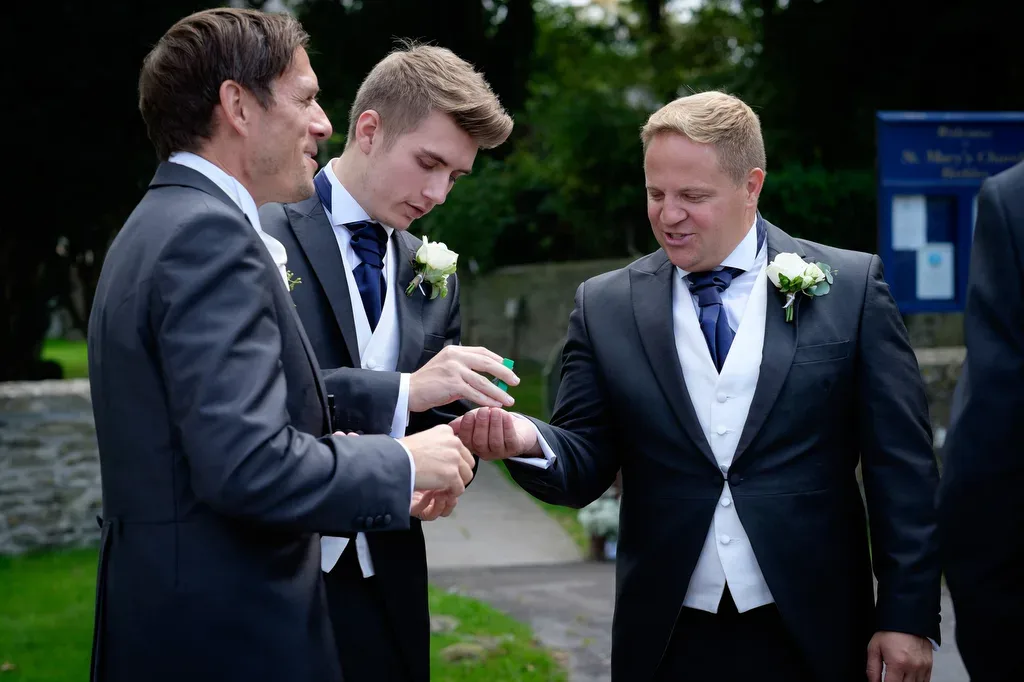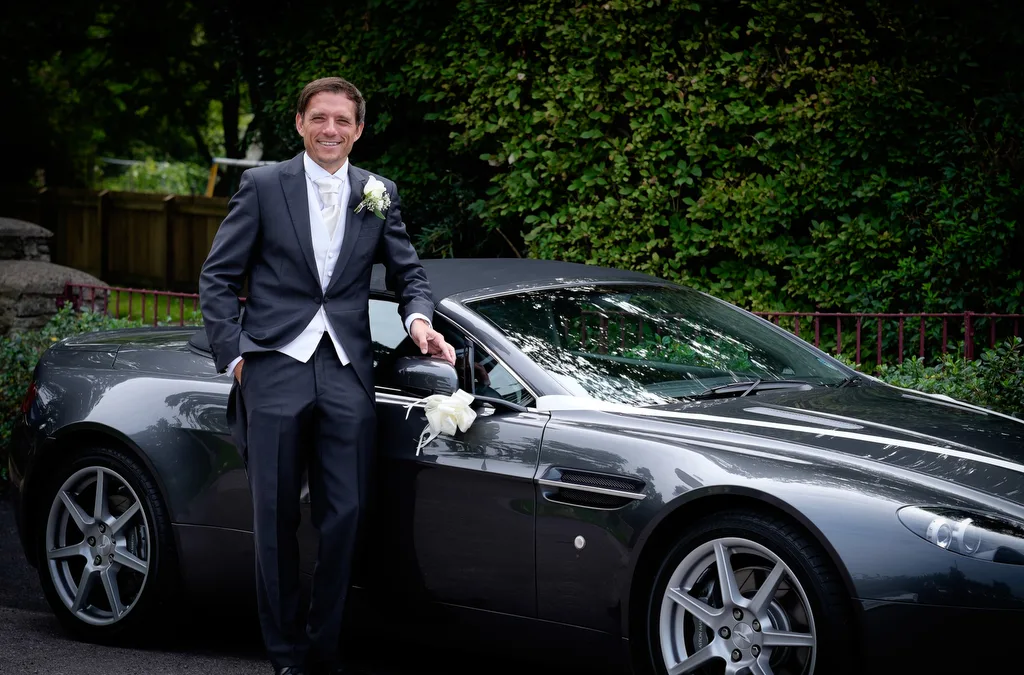What time to Arrive at the Wedding Venue?
When Should I Arrive at the Wedding Venue? Wedding days are a whirlwind of emotions and activity. Amidst the excitement, it’s crucial to stay on track and ensure everything goes smoothly. One critical aspect of this is arriving at the wedding venue on time. In this article, we’ll discuss the ideal time to arrive at the venue, the significance of the wedding breakfast, and other factors that can affect your arrival time. This guide will ensure you’re well-prepared and ready to enjoy your special day.
The Importance of Timing
The Wedding Breakfast: Setting the Tone for the Day
The wedding breakfast plays a significant role in your big day, as it is the first meal you’ll share with your guests. It is traditionally held after the ceremony and serves as a chance for the couple to relax and celebrate with their loved ones. To ensure a smooth transition from the ceremony to the reception, it’s essential to arrive at the wedding venue in a timely manner.
Creating a Timeline: From Morning Preparations to the Reception
To determine the best time to arrive at your wedding venue, it’s essential to create a detailed timeline. This will help you keep track of everything and ensure you have enough time for each part of the day. Here are some factors to consider:
- Hair and makeup appointments
- Travel time to the ceremony location
- Time for photographs
- The wedding ceremony
- Emergencies at the wedding
Your timeline should be realistic and account for any potential delays. Remember that things may not always go according to plan, so it’s essential to build in extra time.
Coordinating with Vendors and Guests
Another critical aspect of timing is coordinating with your wedding vendors and guests. Ensure that everyone is aware of the schedule, and confirm their arrival times well in advance. This will help everything run smoothly and avoid any last-minute hiccups.
Adjusting Your Arrival Time: Factors to Consider
The Ceremony and Reception Venues
If your ceremony and reception are at the same venue, you may need to arrive earlier to allow time for setup and decorating. On the other hand, if your venues are separate, you’ll need to factor in travel time between the two locations.
First-Look Photos and Family Portraits
If you’re planning to have a first-look photo session or family portraits taken before the ceremony, you’ll need to arrive at the venue earlier to allow for adequate time. Speak with your photographer and work out a timeline that includes these sessions.
Managing Last-Minute Surprises
Despite your best efforts, unexpected situations can arise on your wedding day. Whether it’s a wardrobe malfunction or a delay with your transportation, it’s essential to remain calm and find a solution. For tips on handling emergencies at the wedding, check out this helpful resource.
Out-of-Town Guests
If you have guests traveling from out of town, it’s important to keep their arrival times in mind. Consider hosting a welcome event or providing a designated area for guests to relax and refresh before the ceremony begins.
In conclusion, arriving at the wedding venue at the right time is crucial for a smooth and stress-free day. By considering the factors mentioned above and creating a detailed timeline, you’ll be well on your way to enjoying your special day.
When Should I Arrive at the Wedding Venue? A Comprehensive Guide
The Bride and Groom’s Arrival Times: Key Differences
The Bride’s Arrival: Making an Entrance
The bride’s arrival at the wedding venue is a crucial moment, setting the stage for the ceremony to follow. Generally, brides should arrive at the venue about 30 minutes to an hour before the ceremony. This allows for final touch-ups, last-minute adjustments, and a few moments of quiet reflection before the big moment.
However, there are a few factors that may require the bride to arrive even earlier:
- Photoshoots: If you’re planning pre-ceremony photos, such as first-look or bridal party images, you’ll need to arrive earlier to accommodate the photography schedule.
- Final preparations: If your ceremony space requires any last-minute touches or setup, you’ll need to arrive earlier to oversee the process and ensure everything is perfect.
The Groom’s Arrival: Welcoming Guests
Unlike the bride, the groom’s arrival at the wedding venue is typically more low-key. The groom and his groomsmen are usually responsible for welcoming guests and ensuring they’re comfortably seated before the ceremony begins. As a result, the groom and his groomsmen should arrive at the venue at least an hour before the ceremony to complete these tasks and handle any last-minute surprises.
The Wedding Party: Coordinating Arrival Times
Bridesmaids and Maid of Honor: Support for the Bride
The bridesmaids and maid of honor play essential roles in supporting the bride throughout the day. They should arrive at the venue at the same time as the bride, or even earlier if they’re participating in pre-ceremony photos. Additionally, they may be responsible for assisting with last-minute preparations or calming the bride’s nerves before her grand entrance.
Groomsmen and Best Man: Duties and Responsibilities
The groomsmen and best man also have essential roles to play on the wedding day. They should arrive at the venue early, along with the groom, to welcome guests and ensure everything is running smoothly. The best man, in particular, should be available to assist the groom with any last-minute tasks, such as placing the wedding breakfast menus on tables or coordinating with the officiant.
The Role of Wedding Planners and Coordinators
Wedding Planners: Preparing the Venue
A professional wedding planner or coordinator can be a lifesaver when it comes to managing the logistics of your big day. They should arrive at the venue several hours before the ceremony to oversee setup and ensure that everything is in place. This includes coordinating with vendors, overseeing the decoration of the ceremony and reception spaces, and setting up the wedding breakfast area.
Day-Of Coordinators: Keeping Everything on Schedule
If you’ve hired a day-of coordinator, they’ll be responsible for ensuring that everyone, including the wedding party and vendors, is on schedule. This includes making sure the bride, groom, and their respective parties arrive at the venue on time. A day-of coordinator can help manage any last-minute issues or emergencies that may arise, allowing you to relax and enjoy your special day.
By coordinating arrival times and managing the various roles and responsibilities of your wedding party, you’ll ensure a seamless and stress-free wedding day.

When Should I Arrive at the Wedding Venue? A Comprehensive Guide
Wrapping It Up: Ensuring a Seamless Wedding Day Experience
Arriving at the wedding venue at the right time is a critical element in ensuring your big day runs smoothly. By taking the various factors discussed in this guide into account, you’ll be well-prepared to enjoy your wedding day without any unnecessary stress or last-minute chaos.
Recap: Key Factors to Consider
To recap, some of the main factors you’ll need to consider when determining the appropriate arrival time at your wedding venue include:
- The role and timing of the wedding breakfast
- Creating a detailed timeline that accounts for every part of the day
- Coordinating with vendors, wedding planners, and day-of coordinators
- Factoring in the arrival times of the bride, groom, and wedding party members
- Accounting for any pre-ceremony photoshoots or family portraits
- Preparing for unexpected situations and potential emergencies
Final Tips for a Stress-Free Wedding Day
Here are a few final tips to help you ensure a stress-free and enjoyable wedding day:
- Delegate responsibilities: Assign tasks to your wedding party members, such as the groomsmen and bridesmaids, to help ease the burden on your big day.
- Stay organized: Keep a binder or digital folder containing all of your wedding planning information, such as vendor contracts and guest lists, to make it easier to reference and stay on top of everything.
- Communicate clearly: Make sure that everyone involved in your wedding, from your wedding party to your vendors, is aware of your timeline and their respective responsibilities.
- Build in buffer time: When creating your timeline, include extra time for unexpected delays or last-minute changes.
Cherishing Your Special Day
Your wedding day is a once-in-a-lifetime event, so it’s essential to do everything you can to ensure it’s as memorable and enjoyable as possible. By planning ahead, staying organized, and considering the factors mentioned in this guide, you’ll be well on your way to a stress-free and seamless wedding experience.
For more wedding planning advice and resources, be sure to check out the following:
- This insightful video on wedding planning tips
- The comprehensive range of wedding resources and services available at The FX Works
- This informative video on the responsibilities of groomsmen
By taking the time to plan your wedding day carefully and focusing on the aspects that matter most to you and your partner, you’ll create a beautiful celebration that you and your guests will cherish for years to come.

